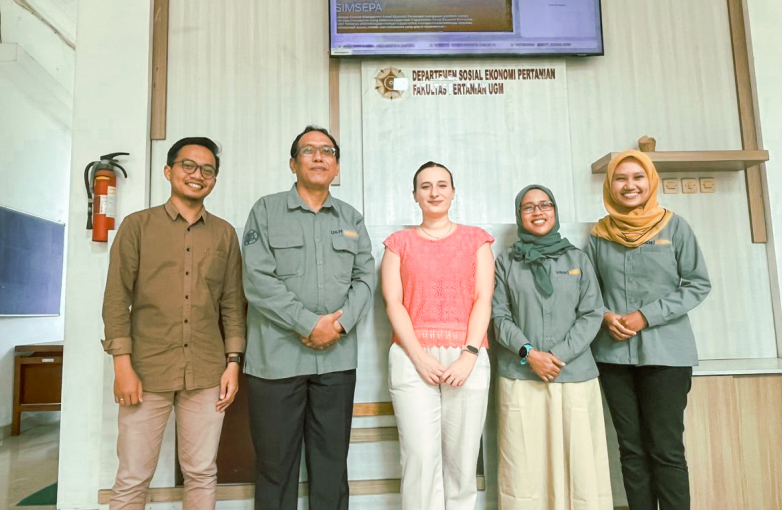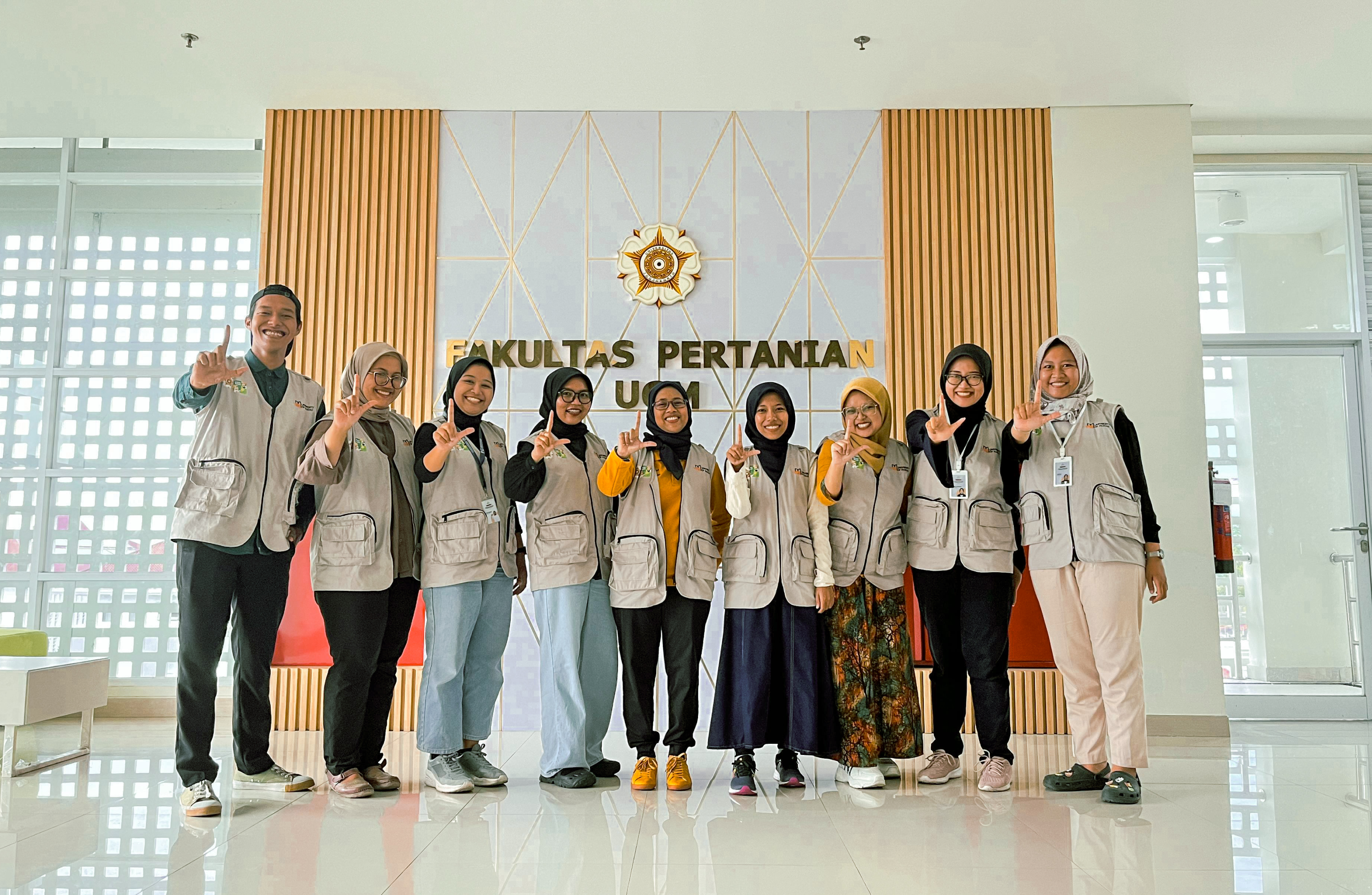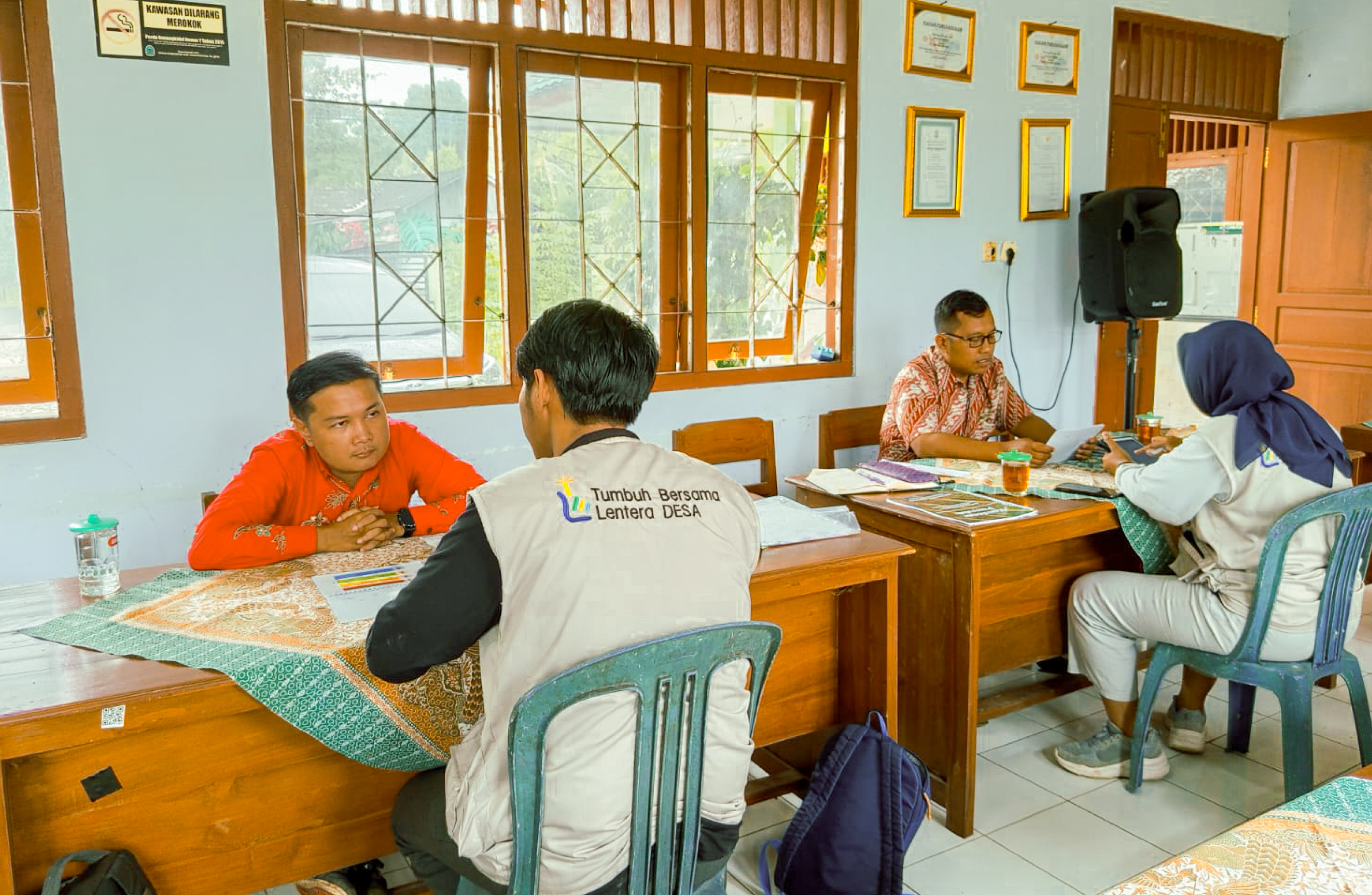
The Agricultural Extension and Communication (PKP) Study Program at Universitas Gadjah Mada (UGM) has established a research collaboration with the University of Passau, Germany. This research focuses on evaluating the effectiveness of using Lentera Desa, a digital extension platform, for training both agricultural extension workers and millennial farmers in Special Region of Yogyakarta (DIY).
The study aims to examine how integrating extension activities with the Lentera Desa platform can enhance training effectiveness. The platform is designed to be accessible to both extension workers and millennial farmers, offering various online training materials, such as digital literacy and farm record-keeping.
The research includes three treatment methods:
- Blended learning – a combination of offline and online training using Lentera Desa.
- Fully online – training conducted exclusively through the platform.
- Control group – no training to compare results.
Currently, the research is in the data collection phase. The study samples are drawn from millennial farmers across all districts and cities in the Special Region of Yogyakarta (DIY), aged between 19 and 39 years old, and agricultural extension workers.
The research commenced in December 2024 and is planned to continue until May 2026. The project involves seven researchers from UGM and two researchers from the University of Passau, and chosen enumerators.

It is expected that this research will demonstrate that LenteraDesa can be a solution to the limited number of agricultural extension workers in Indonesia. By enabling more farmers to access training online, this innovation has the potential to accelerate information dissemination and skill enhancement in the agricultural sector.
“The number of agricultural extension workers is currently limited, while the demand for information and training among farmers continues to grow. We hope that LenteraDesa can be a solution that reaches more farmers through digital approaches,” said one of the research team members.

This research collaboration also supports the Sustainable Development Goals (SDGs), particularly:
- SDG 2 (Zero Hunger): Enhancing food security through farmer capacity building.
- SDG 4 (Quality Education): Ensuring access to quality education and training for farmers and extension workers.
- SDG 8 (Decent Work and Economic Growth): Promoting rural economic growth by improving farmers’ skills.
- SDG 9 (Industry, Innovation, and Infrastructure): Utilizing digital technology in agricultural extension.
With this collaboration, it is hoped that agricultural extension innovations will continue to develop and support the sustainability of the agricultural sector in Indonesia through the use of digital technology.
Website Admin, Department of Agricultural Socio-Economics, Faculty of Agriculture, UGM
